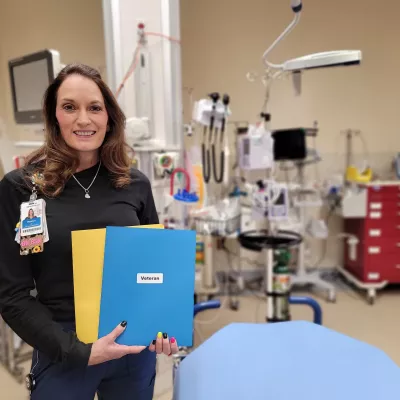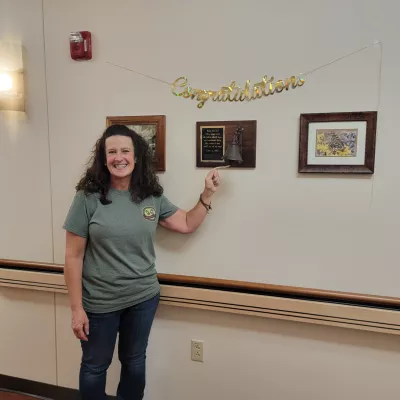- AdventHealth
Choose the health content that’s right for you, and get it delivered right in your inbox.
Colorectal Cancer is among the most prevalent and deadly cancers in the country and early detection is key to survival. The American Cancer Society estimates that 150,000 people will be diagnosed with colon cancer in 2024 with more than 53,000 expected to die from the disease. In late July, the Food and Drug Administration (FDA) approved a new blood test, called Shield, giving physicians another tool for early detection.
“I think it’s good in the sense that it is a new way to diagnose colon cancer,” said AdventHealth Parker Colorectal Surgeon Brandon Chapman, MD. “There is definitely a use for patients that may not be able to get a colonoscopy for a variety of reasons.”
The Shield test is intended for individuals at average risk for the disease, age 45 or older. It is the first blood test to be approved by the FDA as a primary screening option for colorectal cancer.
Even with this latest development in early detection, Dr. Chapman doesn’t want his patients to stray away from the most effective way to combat colon cancer, a colonoscopy.
“It is always nice to have additional tests to diagnose cancer, but I think the key to remember is that a colonoscopy is still the gold standard,” said Dr. Chapman.
The main difference between a colonoscopy and a blood test, similar to Shield, is that a colonoscopy can allow a physician to locate and remove the polyps that cause colon cancer before they can progress. The blood test is a method to diagnose cancer, but not prevent it, like a colonoscopy.
“With this test if you get a positive, it may or may not have already spread somewhere else. If it hasn’t spread somewhere else, you are still going to have to deal with at least a surgery or chemotherapy. There is a long road ahead as opposed to just getting a colonoscopy and preventing it all together,” said Dr. Chapman.
The American Cancer Society recommends people at average risk of colorectal cancer start regular screening, like a colonoscopy, at age 45.
“If it is my family, I’m not telling them to go and get this blood test done. I like preventing rather than only detecting,” said Dr. Chapman.
If you would like more information on how to schedule a colonoscopy with Dr. Chapman, you can find out more here.



